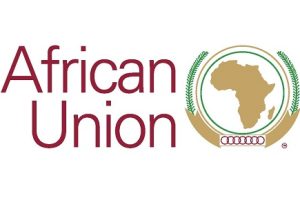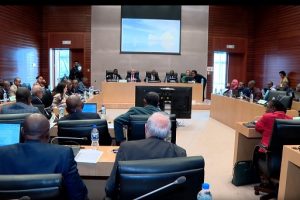Humanitarian agencies play a major role in bettering the state of the natural setting, boosting the performance of human rights and enlightening the wellbeing of the underprivileged.
However, there are tangible worries that humanitarian agencies are on double missions to advance the political interest of their masters and engage in clandestine activities to influence governments. In many countries, humanitarian organizations have politically intervened to meet some of the hidden agendas of their financers.
The same is happing in Ethiopia in relation to the current situation in the country. For months now, many humanitarian organizations have been engaged in political activities that may put the interest of the country in danger.
Some even went far to help the terrorist TPLF group and some others tries to put unwarranted pressure against the Ethiopian government to succumb to foreign influences.
Against this backdrop, Agency for Civil Society Organizations announced the suspension of the work permit of three foreign humanitarian organizations for three months until a final decision is made. This is in accordance with Article 77 (4) of Proclamation No.1113/2011.
MSF Holland, Norwegian Refugee Council, and Al Maktoume Foundation are the organizations whose work permits have been suspended by the agency. While they have been engaged in different humanitarian operations in Ethiopia, the agency has identified rule violations by these organizations while monitoring their activities.
As a matter of fact, non-governmental organizations, in light of their funding and public opinion issues, can be rather political in nature. In fact, they “sometimes seize on issues that seem designed more to promote their own image and fundraising efforts than to advance the public interest,” according to a document conducted in the area.
Humanitarian assistance provided in recent years by nongovernmental organizations in Africa has saved hundreds of thousands of lives. While the value of these efforts is increasingly recognized and appreciate, some analysts have begun to assert that this kind of assistance on occasion exacerbates conflict rather than contributing to peace. The most direct negative impact occurs when warring forces gain control of supplies intended for civilians either through imposing levies or through theft.
Humanitarian aid cannot guarantee success, can create dependencies, Possibility of corruption, does not always reach the most in need, dependent on donor funding, not a long-term solution, chronic inefficiencies, can be biased, difficult to measure impact, can distort economic markets and too western focused, as learned from Humanitarian Careers website.
In the present climate, following the law enforcement operation that has been taking place in the northern parts of Ethiopia, non-governmental organizations have been getting off track by missing the desired goal. For illustrative purposes, quite a lot of refugees have been found using the UNHCR identity card.
Through the passage of time, the UNHCR admits a ‘modest decrease’ in the number of Ethiopian refugees in Sudanese camps during the last few months.
Despite admitting the decrease, the UN Refugee Agency said it is not able to verify the whereabouts of those who have left, including those who may have returned to their country of origin.
In a similar vein, the Ethiopian government has been time after time voicing its concerns that ruthless youth groups called ‘Samri’ who were involved in the MaiKadra Massacre have been protected under the umbrella of the UNHCR camps positioned in Sudan.
According to the Financial Times report, last July the terrorist TPLF has up to 30,000 soldiers waiting in Sudan to join the fight and establish a supply corridor with adjoining Sudan.
The Agency for Civil Society Organizations (ACSO) disclosed that it would take corrective measures against foreign aid groups that are posing threats to Ethiopia’s sovereignty, unity, and security.
Reacting to the demands of some humanitarian agencies and their hidden objectives, Assistant Professor of Political Science and International Studies at Bahir Dar University Yayew Getnet told The Ethiopian Herald said that the mandate International aid agency is providing aid and other necessary materials of food and non-food items. “Unfortunately, what we were witnessing from USAID is quite different from this and the question of opening corridor and other relations questions related to withdrawal of military was against the principle of humanitarian aid.
Humanitarian assistance is provided through a bilateral collaboration of federal government and international organizations, he said, adding that the corridor in which aid is provided needs to be facilitated by the government.
“The international humanitarian organizations need to stick to the principle of humanitarian aid and stay neutral. Some have hidden political motives to support the terrorist group,” he wrapped up.
In an interview with The Ethiopian Herald, ACSO Deputy Director-General Fasikaw Molla said, “The Agency has no mercy for those civil society organizations that are working in connivance with Ethiopia’s enemies. We have information that some relief agencies are working against the national interests of the country. Once we have completed the investigation, we will take the necessary corrective actions.
Evidence from different sources indicates that a small number of CSOs are performing out of their mission. There is nothing hidden about their activities. We are trying to solve the problems by working together. If the efforts fail, ACSO will take corrective measures, ranging from warnings to suspensions, he stated.
He called on organizations to return to normalcy and respect the rule of law and focus only on the interests of Ethiopia.
As to him the organizations, as well as the individuals, are accountable under the law of the country. He urged all domestic and foreign aid agencies to carry out legal activities in accordance with the country’s law and regulations.
Some CSOs would be banned for up to three months as their activities are against the sovereignty of the country. Additional evidence would be collected to carry out further investigations. For instance, Doctors Without Borders, the Norwegian Refugee Council and Al Maktoum Foundation, banned for three months for using unlicensed media and radio equipment as well as illegally importing a number of undocumented foreign workers, he pointed out.
According to him, there are some organizations that are currently under investigation. After making the necessary investigations, ACSO would soon announce the final decision. “We are gathering enough information and evidence to make a decision. The law enforcement will soon be practical”.
According to information obtained from The Ministry of Foreign Affairs, the TPLF has tried to expand the conflict by entering the Benishangul-Gumuz and Amhara regions crossing the long Sudanese border. All of its attempts in these areas have proven futile but new evidence has come to the surface. Some TPLF soldiers infiltrating from the Sudanese side have already been captured carrying UNHCR ID cards. It is a clear violation of international law and UN Conventions governing the handling of refugees. This is happening while the international community has yet to condemn the TPLF’s use of child soldiers as young as 11 years old.
With all its destructive acts, the group unashamedly points its finger at the Government of Ethiopia for blocking aid to the Tigray region. The first logical step should have been to refrain from creating insecurity in the neighboring regions where the aid routes are heading into Tigray. Despite the havoc created against these communities, the Federal Government has never faltered in its commitment to open routes for humanitarian aid delivery to the Tigray Region.
BY ADDISALEM MULAT
ETHIOPIAN HERALD 17 SEPTEMBER 2021





